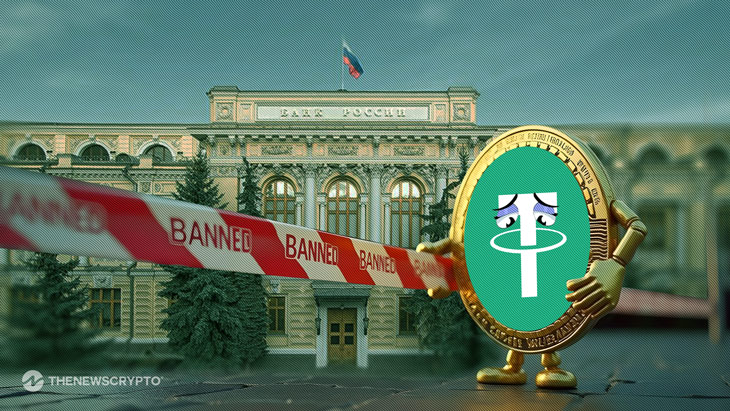- New rules restrict USDT trading in Russia due to sanctions and wallet freeze risks.
- Stablecoins remain permitted for international settlements under strict KYC and AML checks.
Russia’s Central Bank is set to introduce new regulations that could effectively limit Tether (USDT) use within the country. According to experts, trading USDT may no longer be allowed on domestic exchanges due to worries over international sanctions and wallet freezes. However, it seems that using USDT and similar stablecoins in cross-border payments and settlements is still allowed, mainly for international trade.
These regulations will be enacted on May 26 as part of the approval process for trading within Russia’s crypto sandbox. The sandbox was established to allow Russian firms to engage in cryptocurrency-based international trade under Central Bank supervision. Authorities plan to expand this program soon, allowing qualified investors to trade crypto on approved exchange platforms.
Central Bank Limits Crypto Trading to Non-Hostile Countries’ Coins
The Central Bank’s new rules specify which cryptocurrencies investors can trade. Only coins not associated with securities issued by “hostile” countries will be permitted. “Hostile” refers to nations that have imposed sanctions on Russia, while “friendly” countries are those maintaining a neutral stance toward Moscow.
The rules also ban coins that might be blocked by their issuers, payment agents, or controlling parties. This includes the possibility that operators could be instructed to destroy tokens held by Russian users, creating additional risks for domestic holders.
Experts Warn USDT Likely Restricted but Allowed for Cross-Border Use
While the Central Bank did not explicitly mention USDT or any specific cryptoassets in its announcement, experts agree that major USD-pegged stablecoins like USDT probably do not meet the new criteria. Georgy Gukasyan, Director of Tax and Legal at DRT, described the Central Bank’s definitions as broad enough to include some stablecoins.
Mikhail Uspensky, a member of Russia’s expert council on crypto regulation, confirmed that USDT fails to comply with the new standards and likely will not be allowed to circulate in Russia. However, he emphasized that stablecoins can still be used for international settlements.
Gukasyan further explained that using Tether for US dollar redemption is allowed only to those who clear strict KYC and AML checks. According to the sanctions, Tether has the authority not to redeem tokens for unverified users.
Furthermore, Tether has the power to freeze tokens in any wallet at its discretion. For example, when the U.S. authorities seized the Russian crypto exchange Garantex’s domains and froze $26 million in assets earlier this year, Tether cooperated by freezing millions of USDT tokens held in Garantex wallets.
These new regulatory developments highlight the increasing challenges for stablecoin usage in Russia, balancing domestic control with the needs of cross-border trade.
Highlighted crypto news today:
Metaplanet’s $104 Million Bitcoin Buy Reflects Confidence in BTC Rally








